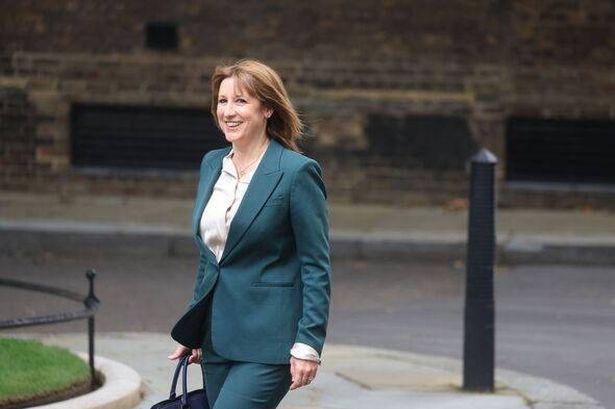Health
UK State Pension Age May Rise to 70 Amid Financial Pressures

The debate over the UK state pension age has intensified, with predictions suggesting it could rise to 70 sooner than previously expected. This shift comes in response to mounting financial pressures, raising concerns about the sustainability of the current pension system.
Chancellor Rachel Reeves faces renewed calls to reevaluate the triple lock policy, which guarantees annual pension increases. The state pension age is currently set at 66, with plans to increase it to 67 by 2028. Experts argue that demographic changes and rising costs demand urgent action to ensure the long-term viability of the pension framework.
Independent financial adviser Samuel Mather-Holgate from Mather and Murray Financial in Swindon emphasized the need for reform. He stated, “The state pension system is ripe for squeezing, so an increase to the state pension age is coming down the tracks, probably to 70.” Mather-Holgate acknowledged that modifying the triple lock could lead to significant savings but noted the political challenges, as older voters are a crucial demographic.
Currently, the pension system accounts for nearly 5% of the UK’s Gross Domestic Product (GDP), with projections indicating this could rise to almost 8% over the next 50 years. The Office for Budget Responsibility (OBR) has warned that pension costs will exceed previous estimates by £10 billion annually, largely due to unpredictable inflation and stagnant wage growth since 2012.
The triple lock, which ensures pensions increase by the higher of inflation, earnings growth, or 2.5%, has been identified as a significant factor contributing to rising expenditures. By 2030, it is estimated that this policy could add an additional £23 billion to annual pension spending compared to an inflation-only adjustment.
Organizations like the Institute for Fiscal Studies have called for a more measured approach to pension adjustments. They propose that the state pension age should be aligned with life expectancy, ensuring that workers receive adequate notice of changes. Their recommendation includes phasing out the triple lock once a sustainable replacement rate is established, favoring a more predictable pension uprating system.
Economists support replacing the triple lock policy, arguing that its current trajectory is unsustainable. Economist Ben Ramanauskas shared his views on the platform X, suggesting, “Triple lock needs to be replaced with a single lock indexing the State Pension to average earnings growth. It will be far more sustainable and give pensioners more of a stake in productivity gains.”
In response to these discussions, the government has reiterated its commitment to maintaining the current triple lock policy until the end of parliament. A Treasury spokesperson stated, “We are committed to supporting pensioners and giving them the dignity and security they deserve in retirement.”
A comprehensive review of the state pension age is expected to be published in 2027, which could further inform these ongoing conversations about pension reform in the UK.
-

 Entertainment3 months ago
Entertainment3 months agoAnn Ming Reflects on ITV’s ‘I Fought the Law’ Drama
-

 Entertainment4 months ago
Entertainment4 months agoKate Garraway Sells £2 Million Home Amid Financial Struggles
-

 Health3 months ago
Health3 months agoKatie Price Faces New Health Concerns After Cancer Symptoms Resurface
-

 Entertainment3 months ago
Entertainment3 months agoCoronation Street’s Carl Webster Faces Trouble with New Affairs
-

 Entertainment3 months ago
Entertainment3 months agoWhere is Tinder Swindler Simon Leviev? Latest Updates Revealed
-

 World2 weeks ago
World2 weeks agoBailey Announces Heartbreaking Split from Rebecca After Reunion
-

 Entertainment2 weeks ago
Entertainment2 weeks agoCoronation Street Fans React as Todd Faces Heartbreaking Choice
-

 Entertainment4 months ago
Entertainment4 months agoMarkiplier Addresses AI Controversy During Livestream Response
-

 Science1 month ago
Science1 month agoBrian Cox Addresses Claims of Alien Probe in 3I/ATLAS Discovery
-

 Health4 months ago
Health4 months agoCarol Vorderman Reflects on Health Scare and Family Support
-

 Entertainment4 months ago
Entertainment4 months agoKim Cattrall Posts Cryptic Message After HBO’s Sequel Cancellation
-

 Entertainment3 months ago
Entertainment3 months agoOlivia Attwood Opens Up About Fallout with Former Best Friend





















